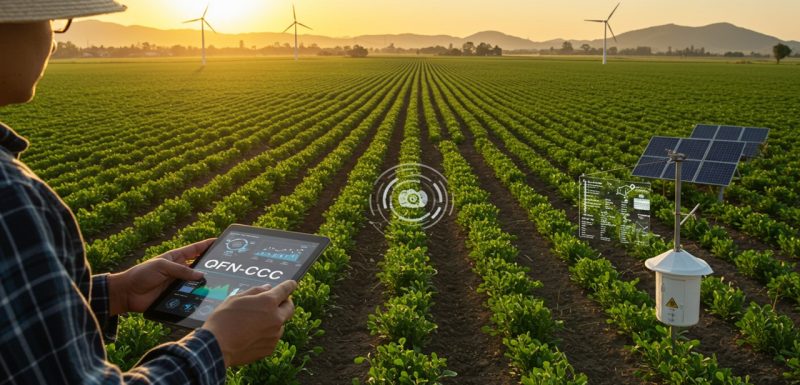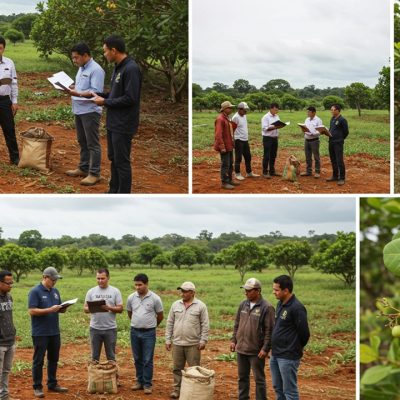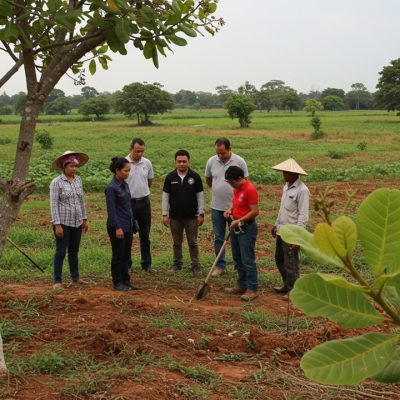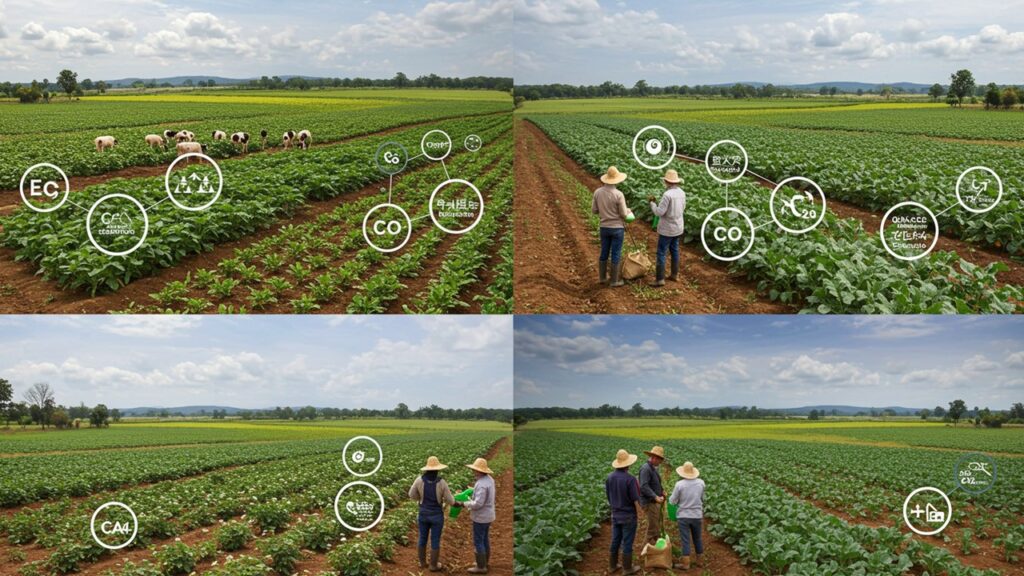




QFN-CCC is dedicated to supporting agricultural companies in their sustainability efforts, providing carbon credit and emissions reduction solutions that promote environmental stewardship and resilience.
Agriculture is both a victim and a contributor to climate change. As the sector faces the impacts of changing weather patterns, it also plays a crucial role in mitigating emissions through sustainable practices.
Facing the Agriculture Industry

Agriculture is highly vulnerable to the impacts of climate change, including droughts, floods, and changing growing seasons.
The sector is a significant source of methane and nitrous oxide emissions, primarily from livestock, rice paddies, and fertilizer use.
Efficient water and land use are critical for sustainable agriculture, requiring innovative practices and technologies.
Consumers and retailers are increasingly demanding sustainably produced food, putting pressure on farmers and agricultural companies to adopt greener practices.
For the Agriculture Industry

Why Choose Us
With extensive experience in the agricultural sector, QFN-CCC understands the unique challenges and opportunities facing your industry.
Our team has a proven track record of helping agricultural companies achieve their sustainability goals through innovative carbon credit solutions and strategic planning.
From emissions assessments to carbon credit procurement and compliance, QFN-CCC provides end-to-end support for all your sustainability needs.
Case Study : Sustainable Agriculture in Action
The agriculture industry is crucial for global food security and climate action. QFN-CCC is your reliable partner in this journey, offering the expertise, solutions, and support you need to navigate the challenges of emissions reduction and sustainability. Contact us today to learn more about how we can help your company achieve its sustainability goals and contribute to a more sustainable future.
Dominic is proactive, results-driven and self-motivated! With over 13 years of experience in the ICT industry. With core competence in the area of Data Analysis, Web and mobile app development, Digital Marketing, Multimedia Technology and Relational Database Management systems. As an data analyst, he has a solid track record in analyzing business intelligence and reports to increase sales. Dominic is well-versed in acquiring data from different sources and developing data systems that support analysis and reporting.
He is always seeking to leverage my skills and experience to guide business decisions and solve problems. And he is a highly motivated professional with initiative, leadership, and good communication skills.
Ernest is a member of the executive leadership of QFN, with experience in emissions reduction project development across the energy and transport sectors, including gas flare down, compressed natural gas development, and sustainable energy-powered logistics initiatives delivering verifiable greenhouse gas reductions. He focuses on structuring bankable, high-integrity carbon projects aligned with international standards and emerging compliance frameworks to support scalable climate impact and long term value creation.
Working in Sustainability for more than 12 years, Guillaume brings his detailed expertise in the Carbon Market, Scope 3 reductions, and GHG projects to the team. With his experience in supply chain and international, multi-stakeholder initiatives, he will support us and contribute to bringing GHG projects to life.
Martijn offers extensive experience to the team, combining his background in Technical Maintenance with expertise in various Project Management methodologies and a track record of managing projects across Africa. His knowledge of the carbon credit market further enhances his value, contributing significantly to the team’s success.
Uchenna’s background encompasses extensive experience in both the strategic development and operational execution of carbon reduction initiatives.
Experienced international business leader with over 40 years of success across emerging markets, combining strong commercial acumen with a solid financial foundation. Skilled in identifying niche opportunities, building strategic partnerships, and driving sustainable growth in complex environments.